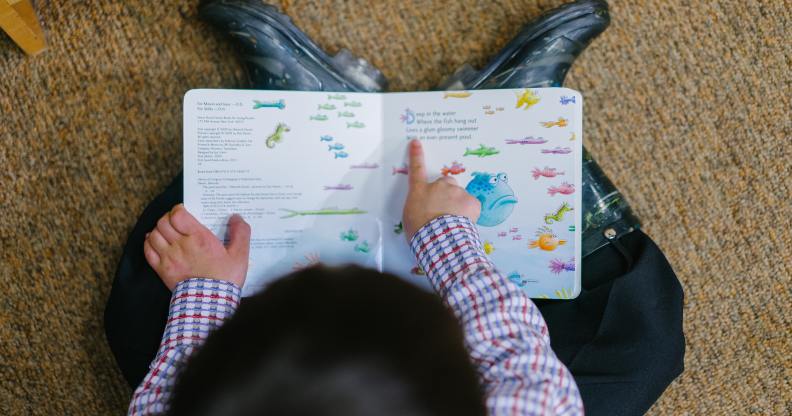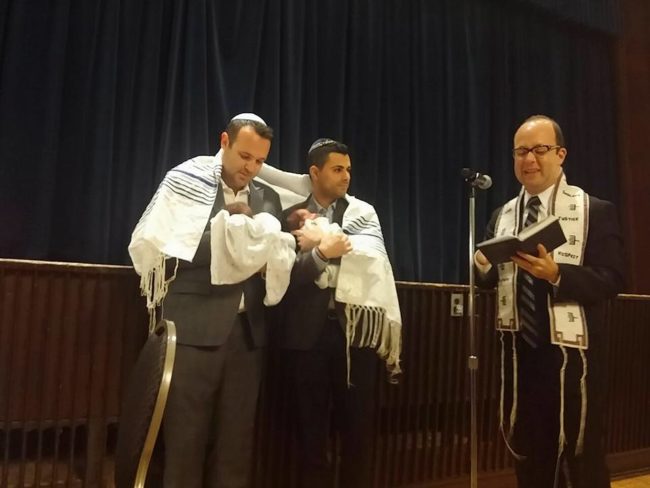State Department appeals ruling granting citizenship to son of gay couple

The two-year-old son of a gay couple was granted US citizenship in February, but the State Department is appealing the decision. (pexels)
President Donald Trump’s administration is appealing a ruling that granted citizenship to the child of a married gay couple.
Judge John F. Walter of the United States District Court for the Central District of California ruled in February that two-year-old Ethan Dvash-Banks was entitled to receive American citizenship even though he did not share a biological relationship to his American father.
But the State Department decided to appeal the decision, NBC News reported on Tuesday (May 7). Reasons for the appeal remain undeclared as the State Department told the news outlet it does not comment on pending litigation.
“The government’s decision to try to strip Ethan of his citizenship is unconstitutional, discriminatory, and morally reprehensible.”
— Aaron Morris
Ethan and his twin brother Aiden were conceived using an anonymous donor’s eggs and the sperm of their fathers, Andrew and Elad Dvash-Banks. They were carried and delivered by a surrogate mother and were born in Canada in September 2016.
Canadian authorities recognised both dads, who have been married since 2011, as legal parents. They were both named on the twins’ birth certificates as their fathers.
But problems arose when the couple decided to move from Canada, where they had been living since 2010, to the US. Andrew is a US citizen, while Elad is Israeli.

Ethan is one of the twin sons born to the gay couple via a surrogate. (Andrew Dvash-Banks/Facebook)
The couple applied for US citizenship for the twins, but Ethan was denied a passport because, according to the State Department: “if the child does not have a biological connection to a US citizen parent, the child will not be a US citizen at birth.”
Andrew was given the option of either sponsoring his son as his “step-son” for a green card, or attempt to adopt him—despite the boy’s birth certificate already identifying him as his father.
Aaron Morris, executive director of Immigration Equality who led the couple’s initial lawsuit against the State Department, condemned the decision to appeal the ruling as “morally reprehensible.”
“Once again, the State Department is refusing to recognize Andrew and Elad’s rights as a married couple,” he told NBC News. “The government’s decision to try to strip Ethan of his citizenship is unconstitutional, discriminatory, and morally reprehensible.”
Why is the State Department appealing the ruling granting citizenship to the son a gay couple?
The State Department two sections of the Immigration and Nationality Act (INA) to justify its requirement of a biological relationship.
Section 301 of the INA specifies that a person born outside the US to a couple where only one of the parents is an American citizen can receive US citizenship if the American parents has lived in the US “for a period or periods totalling not less than five years, at least two of which were after attaining the age of fourteen years.”
It does not mention the need for a biological relationship. Section 309 instead deals with children “born out of wedlock.”
The appeal in the Dvash-Banks case will be heard in the 9th Circuit Court of Appeals, which has previously granted citizenship to children born to a parent married to a US citizen who, however, does not have a biological relationship to the child.
In one case, Scales v INS, the judgement read: “There is no requirement of a blood relationship between Petitioner and his citizen father, as there is for an illegitimate child. We therefore hold that Petitioner acquired citizenship at birth.”
According to Morris, the principle at stake in the appeal is whether same-sex married couples enjoy the same rights as heterosexual married couples.
“That was a question answered by Windsor and Obergefell since 2015, that there is a constitutional right to marriage and to have that right recognized regardless of the gender of the person you marry,” Morris told NBC News.

